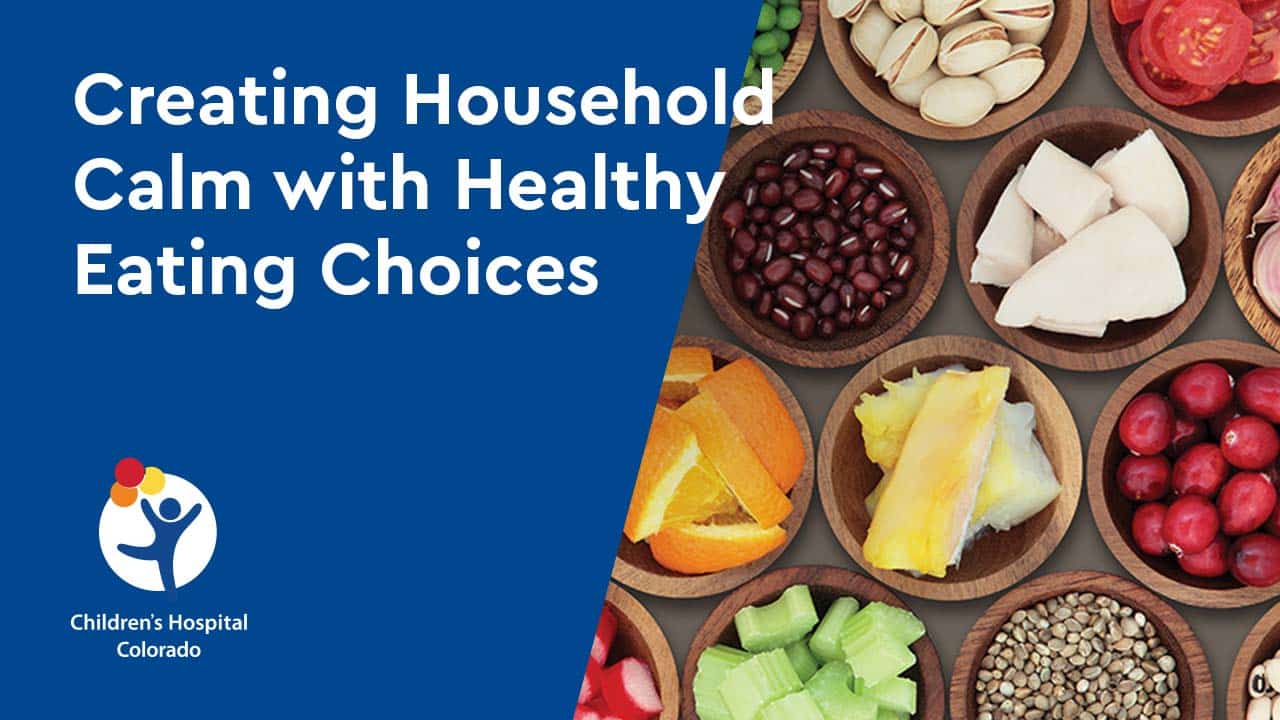During stressful times, it’s common to eat salty, sweet or high-fat foods. Unfortunately, these comfort foods can often make stress and anxiety worse. By practicing mindful eating, you can calm the minds and bodies of your children. Improve your household’s mental and physical wellbeing by making healthy food choices. We’re here to help you figure out which foods to serve and which to avoid.
When your anxious thoughts cause your neck to hunch or stomach to twist, can you combat that by eating different foods? We sat down with our clinical dietitian Cinda Nab, RD, to find out if what we eat affects how we feel — and what we can do about it.
“When we feel anxious or stressed, our reactions may influence our eating behaviors,” says Nab. She explains that those eating behaviors can often make the stress worse, and we don’t even know we’re doing it. For example, high levels of stress increase the hormone cortisol, which can trigger cravings for salty, sweet and high-fat foods.
The first part of reducing stress with eating behaviors, Nab says, is to understand the difference between emotional eating and mindful eating; the latter is a practice that develops your awareness of eating habits.
Five ways to calm your body with food
Nab outlines five ways you can calm your body through wise food choices, which in turn can calm your mind.
- Choose whole fruits and vegetables. While processed foods can be convenient for busy households, they may lack phytochemicals available in fresh fruits and vegetables. These invaluable nutrients, some of them listed below, do more work than we even know to regulate our stress.
- Look for foods with vitamins B, C and D. When you experience stress, you may be more susceptible to becoming sick. These vitamins act as antioxidant and anti-inflammatory agents in your body, which supports your immune system and keeps you from getting sick. Good sources of these vitamins include citrus fruits, berries, dark chocolate and herbal teas such as lavender or chamomile (avoid teas with caffeine). For the B vitamins in particular, choose whole grains and nuts.
- Eat and drink foods with calcium. Along with vitamin D, calcium can help fight the stress hormone cortisol. Nab recommends drinking low-fat milk or eating yogurt. If you don’t eat or drink dairy, dark leafy greens are another good source of calcium and vitamin D.
- Increase your intake of omega-3 fatty acids. Depression is often associated with stress, and research shows that omega-3 fatty acids can reduce depression. You can find these nutrients in fish such as tuna, salmon and halibut as well as in avocados and flaxseed.
- Choose complex carbohydrates over simple sugars. Carbohydrates increase the brain chemical serotonin, which helps reduce stress. Complex carbs provide sustained energy, whereas simple sugars tend to make us feel more drastic changes in mood. Choose whole-grain pastas and breads and brown or wild rice.
- Avoid low-nutrient foods. High on the list are simple sugars (candy, cookies) and caffeine. Stress tends to sap energy, so the instinct is to choose easy stimulants to perk us back up. The problem with simple sugars and caffeine, though, is they boost our energy quickly but only for a short time. After the effects of sugar and caffeine have subsided, you might feel more depleted than before. “In an hour, you can be dragging,” Nab says. So instead, “choose foods that both nurture and nourish your mind and body.”
Tips for buying fish
Are you hesitant to explore the seafood section for fear of buying fish that will be too, well, fishy? Here are some quick tips to help you learn to buy raw or frozen fish.
Want more tips on reducing stress for you and your family? Check out yoga therapy tips, and sign up for the Just Ask Children's newsletter.


